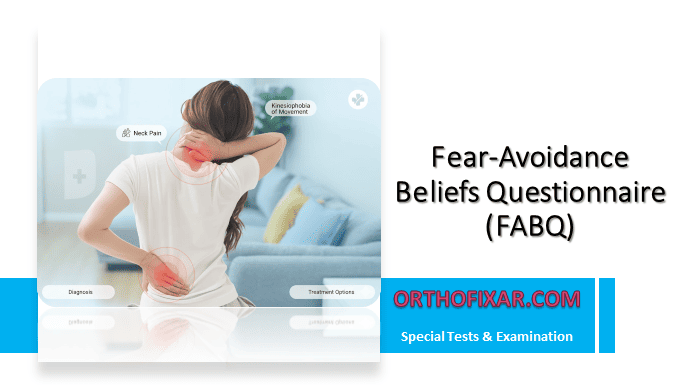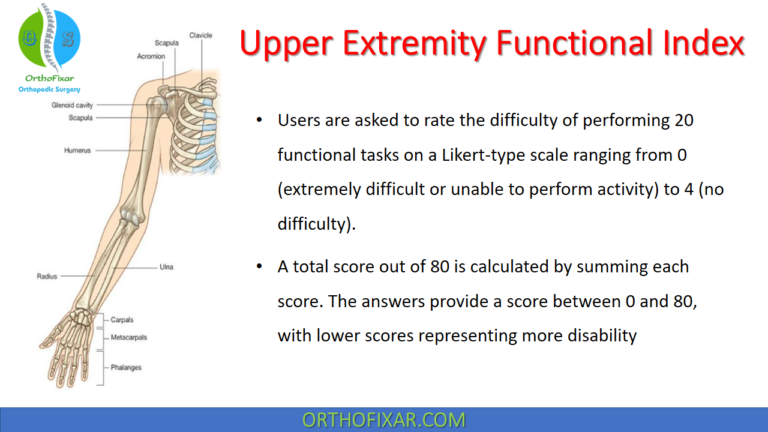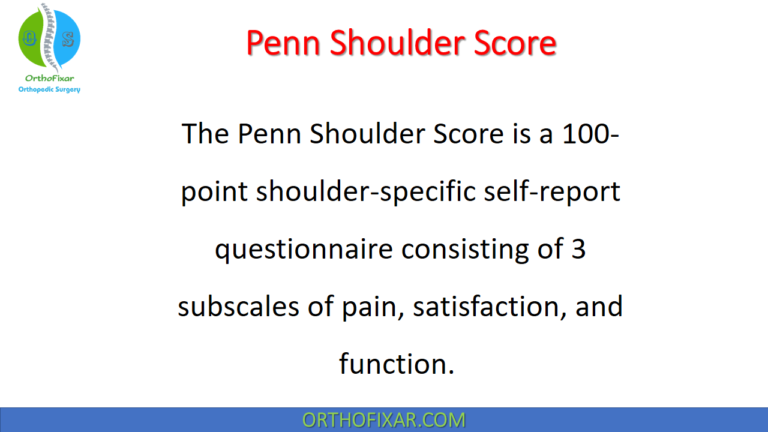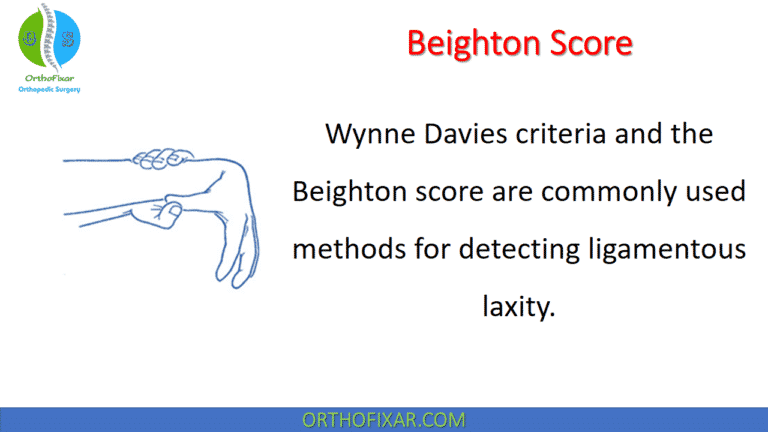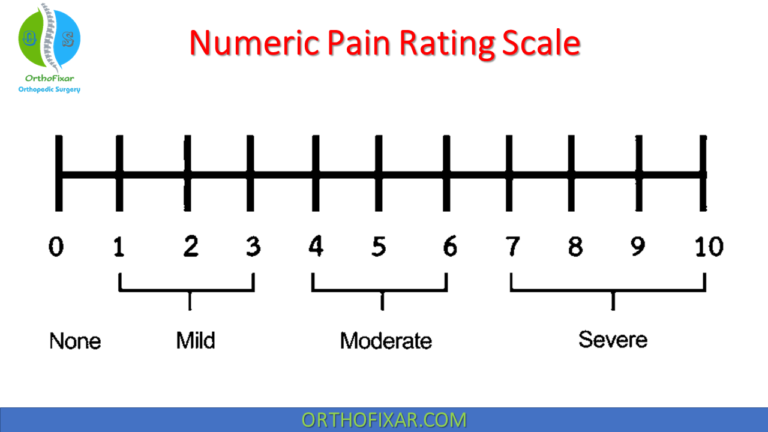The Fear-Avoidance Beliefs Questionnaire (FABQ) is a validated self-report instrument designed to measure how a patient’s beliefs about physical activity and work may influence their pain experience and recovery. It is widely used in musculoskeletal medicine, rehabilitation, and chronic pain management — particularly in patients with low back pain.
The Fear-Avoidance Beliefs Questionnaire (FABQ) helps clinicians identify patients who may have excessive fear of movement (kinesiophobia) or avoidance behaviors that can delay recovery and contribute to chronic disability.
FABQ is not a diagnostic test but a psychological assessment tool that helps predict prognosis and rehabilitation outcomes. High scores may indicate a need for cognitive-behavioral therapy (CBT) or graded exposure programs.
The Fear-Avoidance Beliefs Questionnaire (FABQ) is particularly useful for:
- Low back pain and other chronic musculoskeletal pain conditions
- Return-to-work assessments
- Rehabilitation program planning
- Monitoring psychological barriers to recovery
It assists clinicians in developing a biopsychosocial management plan, emphasizing both physical rehabilitation and psychological support.
Purpose of Fear-Avoidance Beliefs Questionnaire (FABQ)
The FABQ is based on the fear-avoidance model of pain, which suggests that individuals who interpret pain as a sign of harm tend to:
- Avoid physical activity or work,
- Become less active,
- Experience more disability,
- Develop chronic pain due to deconditioning and psychosocial factors.
By assessing these beliefs, healthcare professionals can tailor patient education, physiotherapy, and cognitive-behavioral interventions to address maladaptive attitudes toward pain and movement.
Structure of the FABQ
The Fear-Avoidance Beliefs Questionnaire (FABQ) consists of 16 statements divided into two subscales:
1. Physical Activity Subscale (FABQ-PA)
Assesses the extent to which patients believe that physical activity may cause or worsen their pain.
Example items include:
- “My pain was caused by physical activity.”
- “Physical activity makes my pain worse.”
- “I should not do physical activities that (might) make my pain worse.”
2. Work Subscale (FABQ-W)
Assesses beliefs about how work or occupational activities affect pain and recovery. Example items include:
- “My pain was caused by my work or by an accident at work.”
- “My work makes or would make my pain worse.”
- “I cannot do my normal work until my pain is treated.”
- “I do not think that I will ever be able to go back to that work.”
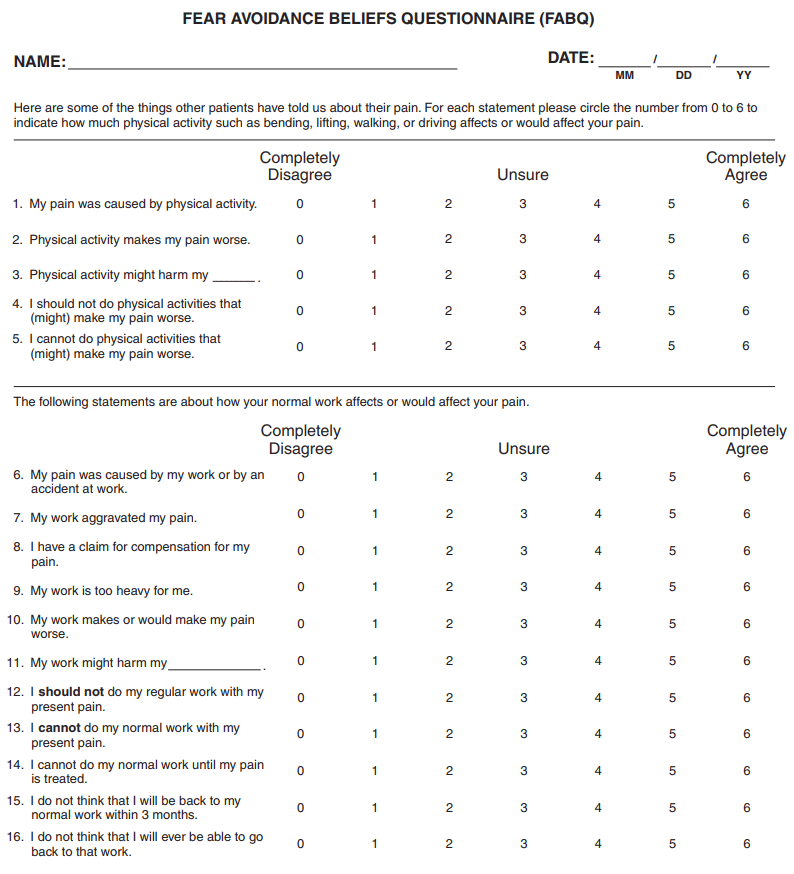
Scoring System
Each item is scored on a 7-point Likert scale, ranging from 0 to 6:
- 0 = Completely disagree
- 6 = Completely agree
Higher scores indicate stronger fear-avoidance beliefs and a higher risk of disability and delayed recovery.
- FABQ-Physical Activity Subscale (FABQ-PA):
Uses 4 specific items (maximum score = 24) - FABQ-Work Subscale (FABQ-W):
Uses 7 specific items (maximum score = 42)
Interpretation
- High FABQ-PA score: Suggests the patient fears movement or exercise, possibly avoiding physiotherapy or activity.
- High FABQ-W score: Suggests strong beliefs that work activities cause or worsen pain, possibly indicating difficulty returning to work.
References & more
- Waddell G, Newton M, Henderson I, Somerville D, Main CJ. A Fear-Avoidance Beliefs Questionnaire (FABQ) and the role of fear-avoidance beliefs in chronic low back pain and disability. Pain. 1993;52(2):157–168. PubMed
- Leeuw M, et al. The Fear-Avoidance Model of Musculoskeletal Pain: Current State of Scientific Evidence. J Behav Med. 2007;30(1):77–94. PubMed
